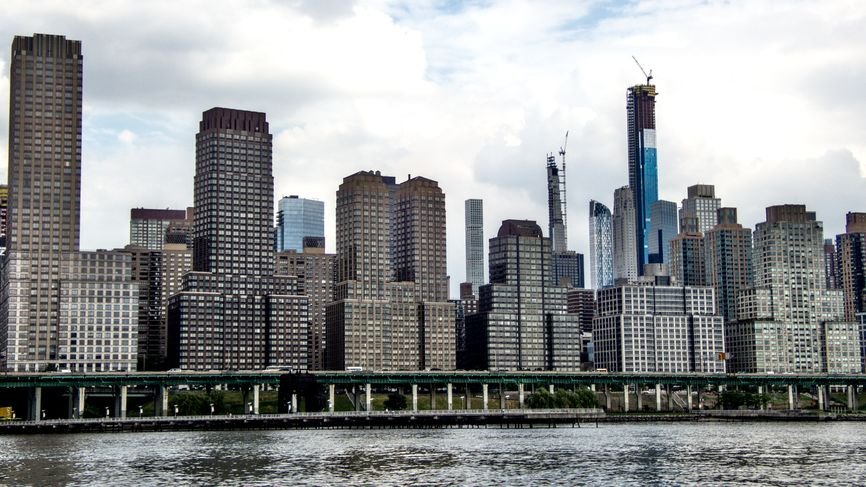
Real estate is in Hong Kong’s DNA. Government-created land shortages, easy access to credit and a growing population made local property a good investment and the source of many family fortunes. Start with a 400-square-foot flat in Tai Po, trade up to a slightly larger unit in Sha Tin, then rinse-and-repeat. With a little luck, you’d soon own a luxurious home in Mid-Levels.
Buying property abroad was a popular next step. Astronomical local prices and the peg-based strength of the Hong Kong dollar made overseas real estate look cheap, even in historically expensive cities like London, New York and Tokyo. In turbulent times, diversification remains a wise strategy.
Buyers were infamous for visiting property expos in Hong Kong’s five-star hotels and purchasing million-dollar homes off the plan, often in cities and neighborhoods they’d never seen. Financing was easy to arrange and tenants paid the mortgage. There was the occasional hiccup—like construction delays, bankrupt builders and delinquent tenants—but if you stuck with established developers and proven locations, you couldn’t go too far wrong. Similar patterns played out with investors from Singapore, mainland China and elsewhere.
COVID-19 changed that.
Covid vs landlords
As millions of jobs vanished, one-third of Canadian and 44% of New York City tenants said they would struggle to pay their May 2020 rent. Tenants found support from Toronto’s “Keep Your Rent,” New York State’s “Housing Justice For All” and similar groups throughout North America, Europe and Oceania. New organizations were founded in response to COVID-19, while existing policy groups and political movements adopted the disease as a cause.
On March 7, 2020, New York State Governor Andrew Cuomo signed an executive order banning residential evictions. The ban was later extended until at least August 20. In Canada, Premier Doug Ford told a media briefing, “If you have a choice between putting food on the table and paying rent, then you are putting food on your table and the Government of Ontario will make sure that nobody gets evicted.”
Ontario’s Landlord and Tenant Board stopped evictions indefinitely. Most other provinces and territories followed suit. When the tribunals reopen, a shortage of examiners and a backlog of enforcement orders all but guarantee cases will drag on for years. While tenants don’t pay rent, landlords continue to be liable for taxes, management fees, insurance and mortgage payments. Meanwhile, tenants still expect their homes to be maintained.
Newspapers feature stories about unresponsive corporate owners and heartless slumlords. Media-shy small investors are not organized or PR-savvy, so public opinion favors tenants, especially photogenic ones with a compelling story.
New realities for investors
Where does this leave overseas investors? Reduced flight schedules and quarantines for arriving travelers mean problems must be managed by videoconference, phone or email. The quality of your local property manager is more important than ever. Meanwhile, social distancing rules make it tough to show a home to a prospective tenant or buyer.
Owners hoping to sell a home with a delinquent tenant will need to offer a steep discount. While mortgage interest rates are low, lenders fear further job losses and are becoming increasingly cautious. In some markets, vendors compete with owners unloading homes that—until COVID-19 arrived—had been profitable short-term rentals. Many of these properties are now offered as fully-furnished conventional rentals, as travel bans reduced short-term bookings to zero. Toronto’s ICE Condominiums, where more than 100 units are now for sale, is a prime example.
These problems are not limited to residential property in North America. Student housing in the United Kingdom and commercial property in Australia are also affected.
Looking forward
Until scientists develop a vaccine and a cure, COVID-19’s human and economic impact will continue to unfold. Landlords with unrealized profits should consider selling now, while buyers are relatively upbeat and rents are current. While each market is unique, there’s a good chance conditions will deteriorate further before they rebound.
Small landlords taking large losses are unlikely to receive much sympathy. But ultimately, tenants will be the biggest losers. Fewer investors mean less housing choice, and the rental stock that remains will be run by large corporations—that have the funds to withstand rent strikes and the lawyers to manage complex regulations—and by governments.
At some point, COVID-19 will create opportunities for end-users and investors with a tolerance for risk. Until then, real estate investment trusts, which offer liquidity, diversification and dividends, are an attractive alternative to rent strikes and delinquent tenants.
Click here for more articles about international property.
Christopher Dillon is the author of the Landed series of real estate books. He has been a commercial and residential landlord in Hong Kong and Tokyo. Landed Global, which includes examples and data from over 110 countries and territories, is available from Amazon.
This story appeared in the June 2, 2020, edition of the South China Morning Post.
* * *